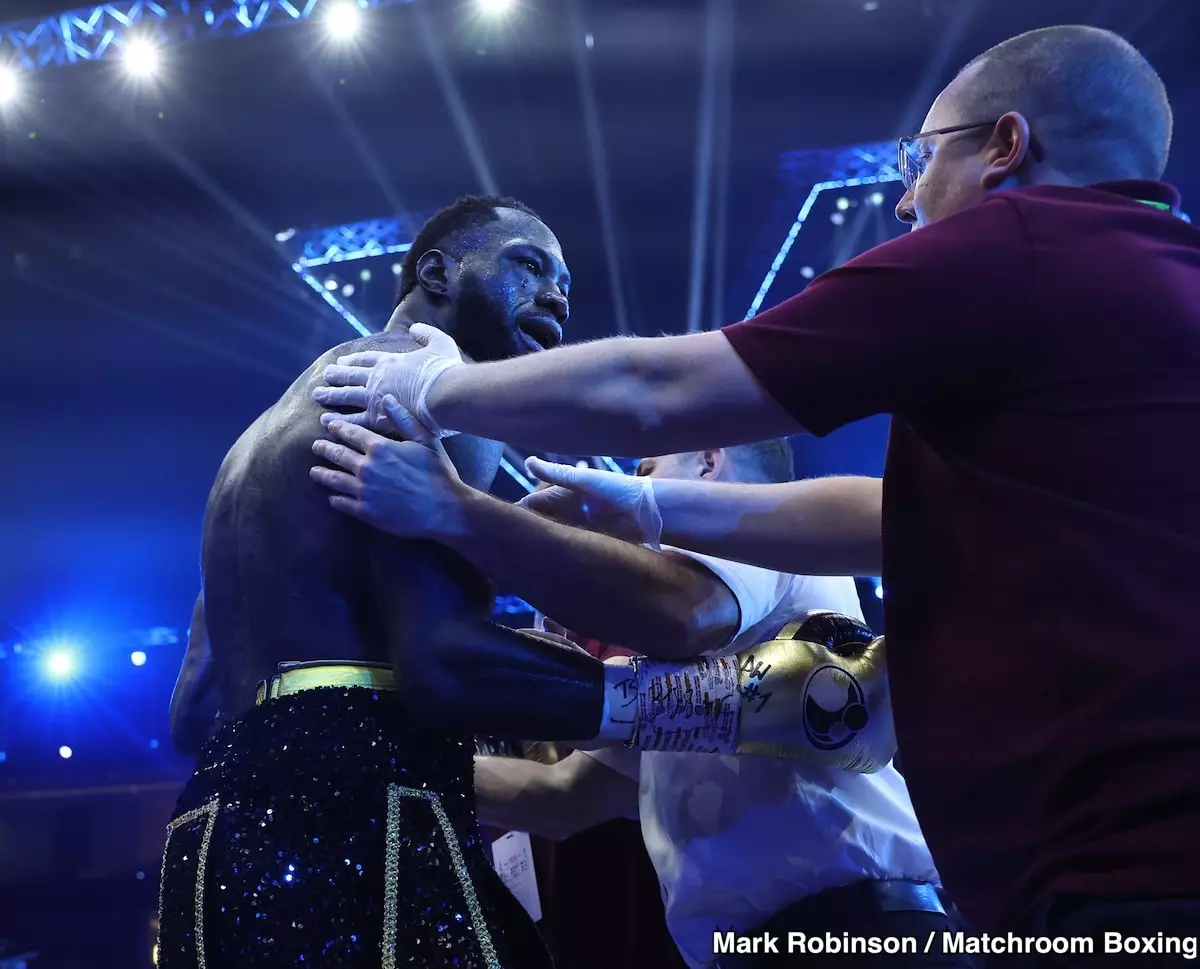Deontay Wilder, once heralded as the “Bronze Bomber” and a heavyweight champion, is making headlines again—but this time, not for the dazzling performances that once earned him acclaim. Instead, his upcoming fight on June 27 against Tyrrell Herndon in Wichita, Kansas, raises eyebrows and questions about the future of a fighter many consider past his prime. Following a series of harrowing defeats, including two in a row against elite opponents, Wilder’s decision to face Herndon—who has experienced his fair share of struggles—signals more than just a re-entry into the ring; it represents a significant rebranding effort in the twilight of his career.
A Fight in Kansas
The choice of Wichita as the setting for Wilder’s return is particularly telling, as it is far removed from the glamorous venues typically associated with boxing’s elite. No Las Vegas glitz or New York prestige—just a straightforward setting that could feel more like a stopover than a destination. Some might argue that fighting in lesser-known arenas could be a strategic move to rebuild his fan base, but it almost feels like a concession to the reality that he’s no longer the main attraction he once was. This isn’t just any comeback; it’s a make-do moment for a fighter attempting to re-establish credibility.
Wilder’s Recent History
The stark reality of Wilder’s situation cannot be overlooked. With a recent record showing only one victory in his last five fights and back-to-back knockouts at the hands of Joseph Parker and Zhilei Zhang, the image of Wilder as an invincible force is growing increasingly faded. These fights left fans questioning not just his physical well-being, but also his competitive spirit inside the ring. The aura that once struck fear into his opponents has eroded, replaced by performance anxiety and uncertainty. A win against Tyrrell Herndon, while potentially beneficial, will not erase the fading chapters of defeat that haunt Wilder’s boxing narrative.
Hope vs. Reality
Promoters Nelson Lopez and Joshua Chasse seem optimistic about this “legacy reload,” as they fondly term it. But let’s be real: how much can we really expect in terms of Wilder regaining his stature? Despite being branded as one of boxing’s hardest hitters, the fight against Herndon feels more like a façade of hope than a legitimate step toward reclaiming the heavyweight crown. With Herndon holding a record that includes defeats to lesser-known fighters and only having barely succeeded in previous bouts, the chances of a resounding victory that revitalizes Wilder’s career appear slim. It’s likely that even a first-round knockout won’t restore the admiration he once commanded; rather, it will continue the narrative of a fighter on the brink of irrelevance.
What Does “Legacy” Even Mean?
The term “legacy” is bandied about freely within the boxing community, but what constitutes a true legacy? For Wilder, it seems essential to explore whether his recent bouts have tarnished or refined his image. His widely publicized trilogy with Tyson Fury was filled with heavy moments—most of them unfavorable for Wilder, ending without a single victory. The thrill of his previous encounters has crumbled into a series of disappointments. It raises a critical question: Can one defining moment of power and aggression salvage a career stained by recent missteps? Or does it merely serve as a reminder of how far he has fallen from grace?
The Reality of Career Extensions
What we are observing with Wilder’s upcoming match isn’t necessarily a comeback; it feels more like a calculated extension of a career that needs breath and possibly a new direction. Staying active in the sport might provide a semblance of relevance in a world that demands performance. This bout could well be more about cashing in on a nostalgic desire for the explosive moments he created in earlier years rather than reclaiming a lost title. But even if Wilder manages to overpower Herndon, fans and critics alike will be left pondering the implications of another victory on his journey. Can a single fight recapture the magic of yesteryear? The answer, frankly, remains disappointing as ever—this comeback isn’t about rediscovering glory, but perhaps merely surviving in a business that moves quickly, leaving fading icons in its wake.


Leave a Reply